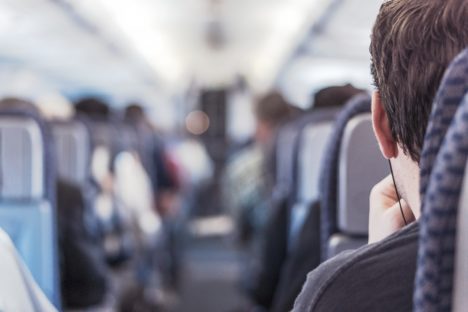If you go to France for a longer or shorter period, it's a safe bet that you will need to move. France offers various transport possibilities to its citizens, residents and holidaymakers. Here is a small point on public transport and personal transport in France.
Public transport in France
France is equipped with several transport networks of various kinds: airports, train stations, car rental points, subways ... Some are regional, some are national and some are international.
Trains
The French rail network is quite dense and generally very centralized. It is a very simple means of transport and very convenient to borrow. Each major French city offers a rail network to its suburbs. Thus, each resident can go to work or in various points of interest of the cities by borrowing the train.
French cities are connected by regional express trains, also called TER. They are also accessible by high-speed trains, or TGV. These are important lines that cross the whole country. These lines also lead to other neighboring countries such as Germany, Switzerland or Italy.
Many French and foreign residents opt for the train as a means of transportation to get to work. This eliminates the need to pass a driver's license or maintain a car. The big cities are working to make this means of transport attractive to unclog cities.
Airplanes
Several major French cities have an international airport. The connections are daily with Paris airports. Air France is the national airline. Its mission is to connect major cities to the capital several times a day. But it also allows provincial cities to join together.
The major French cities with a major airport are Paris, Lyon, Bordeaux, Marseille, Nice, Strasbourg and Toulouse.
Other cities have national airports to allow residents to travel around France quickly and easily. Among these cities are Rouen, Nice, Rennes, Grenoble or Nîmes.
The Metro
The metro equips several large French cities. Paris, the capital, is of course equipped. But other big cities also have it like Lyon, or Marseille. Cities like Lille, Rennes and Toulouse are equipped with light automatic vehicles.
Some cities like Strasbourg have set up streetcars, to allow users to move around town without using their personal vehicles. Transportation costs can also be significantly reduced with public transit. Residents of cities equipped with these systems often prefer them when they have to cross the city quickly.
The buses
In France, the Eurolines network is particularly well developed. Its mission is to connect the city of Paris to all European capitals. The company also serves major French cities between them.
It should be noted that all regions and cities have set up bus lines allowing everyone to move freely between municipalities and small towns. These transit lines are especially useful for those who want to get to work without having to use a particular vehicle.
Traveling by car in France
The car is a popular mode of transport and sought in France. It can sometimes win in freedom, in malleability, and manage oneself own personal or professional routes throughout the territory.
Car rentals
Those who do not own a car can rent one to get around. It is generally enough to hold a valid driving license in France. Thus, citizens, vacationers and residents manage their own transportation route.
To rent a car, it is essential to have a driving license. The conditions then vary according to the nationality of the person passing through France, but also the duration of their stay in the territory.
Many people do their daily work route by car. For example, some people carpool to reduce their footprint on the environment or reduce vehicle maintenance and fuel costs.
Taxi
The taxi is another transport solution available in France. Users then seek the services of a driver to carry out their itinerary. Most often, this mode of transportation is intended for complex and occasional itineraries.
Few people seek the services of a taxi to get to work or to recurring events. In these cases, they will therefore prefer public transportation and renting (or buying) a vehicle to get to work and for personal travel.
Driving in France
For to drive a vehicle in Franceyou must hold a driving license. Foreigners can exchange their driving license obtained in their country of origin against a French license if they wish. They can also take driving license exams in France, under certain conditions.
European citizens are free to move to other European countries for a certain period of time. But non-European foreigners will have to obtain an official driving license on French soil if they stay less than three months. Beyond that, a permit will be necessary.
French road and motorway networks are most often well maintained and properly managed. Highways allow you to reach the various cities and connect the regions together.
To conclude
France is a country where transport has developed very well. In the city, users generally have the choice between buses, the tram or the metro. For greater distances, it is possible to turn to the plane and the train. It is also possible to use your car or rent one to get around France. Foreign nationals will be offered a number of possibilities, particularly in large cities, even if smaller cities also offer suitable solutions.



